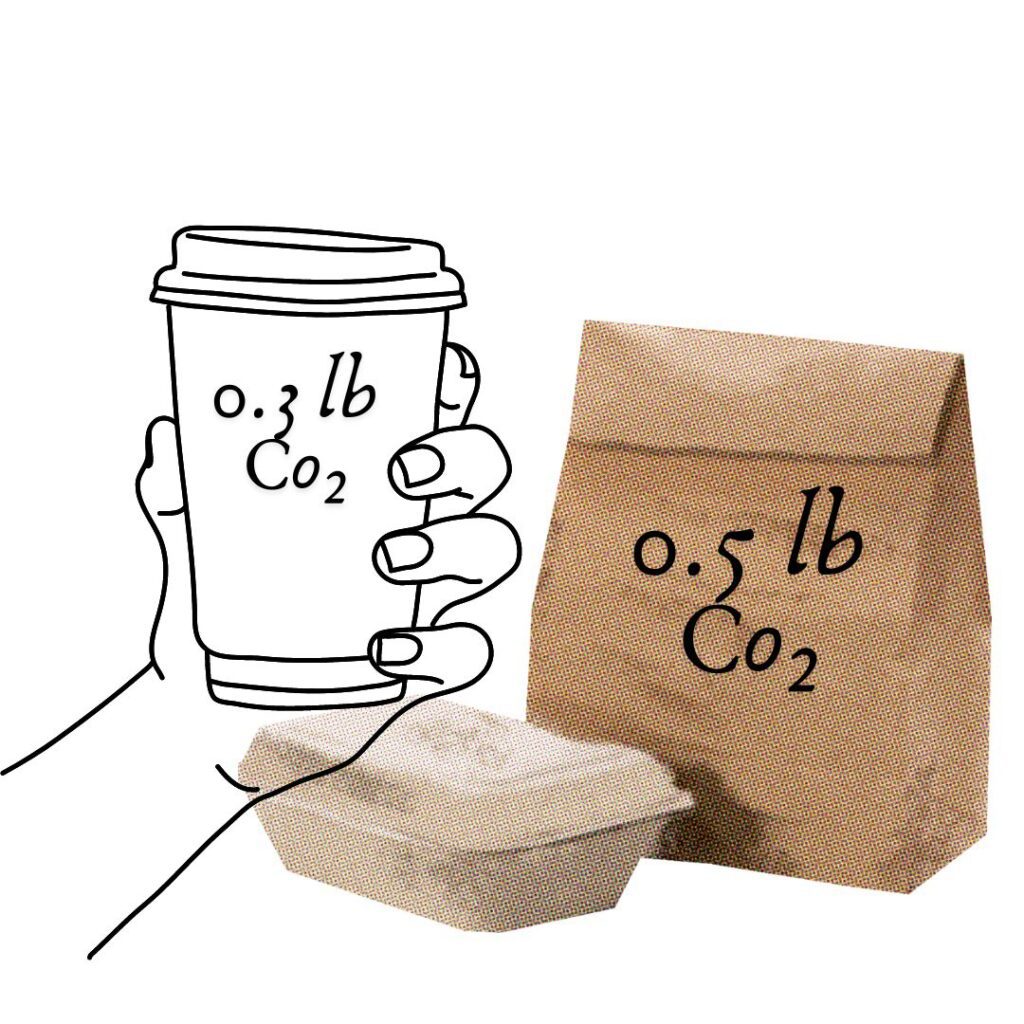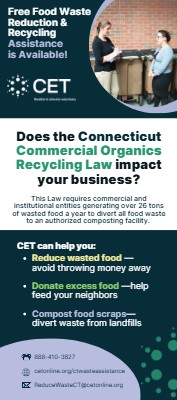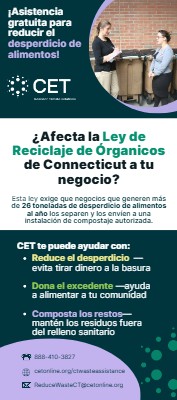Our Approach: Personal and Practical

When your business takes steps to reduce wasted food, you’re doing more than improving operations—you’re fostering a sense of responsibility among staff and customers alike.
Reducing wasted food can help ensure your business complies with Connecticut Commercial Organics Recycling Law, avoiding penalties, while engaging employees in sustainability efforts can strengthen team morale and job satisfaction. By showing your commitment to sustainability, you also attract conscious customers and build lasting loyalty.
FAQs:

We offer customized solutions tailored to your business’s specific needs, including on-site visits, virtual consultations, and ongoing support.
FAQs:
Are you connected to your local business community? If so, you’re a valuable partner in reducing waste. This section provides straightforward, shareable content about waste reduction and recycling for your audience.
Featured resources


Let us help!
The results are undeniable. Businesses that partner with CET typically see a 30% reduction in wasted food, translating to stronger community impact.
Not only that, but with our no-cost assistance 9 out of 10 businesses experience cost neutrality or cost savings after implementing wasted food solutions.
Get started by filling out the form below or give us a call; a CET expert will follow up with you on how we can help.
Stay Connected: Get the Latest Resources on Food Waste Reduction
